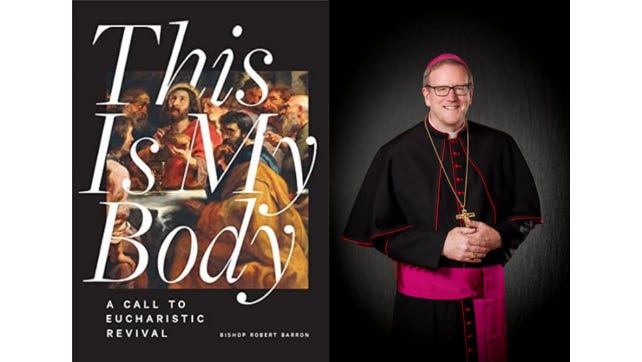9 Books I Read While Discerning Catholicism: #7 This Is My Body by Bishop Barron
My hope today was to crush it and write three, count em’, three articles. I spent the bulk of the time on Before I Go…Catholic, which is a reflection on the Christians who mentored me and guided me to this point. I hope it’s well received.
This book not only made the list of influential books that led me to become Catholic, it also was the book we decided to gift to the families this year for Christmas.
This was decided for three reasons:
It is an excellent summary of the Church history surrounding the Doctrine of the Eucharist.
It’s short.
It was the cheapest of all the books we read this year. Thus, as providence often does, our decision was directed by heaven via our wallet :)
Uncontested
The early Christians were not stupid. To this day, they are some of the greatest minds that ever lived. There is an assumption among the modern Christians that if the early Fathers knew what we know now, they would abandon beliefs like Christ’s body, soul, and divinity being truly present under the appearances of bread and wine. But to think of the Church Fathers as Christian Neanderthals is uncharitable.
According to Bishop Barron, it was a 1000 years before the first major contention to the doctrine of the Eucharist occurred. This fact is also iterated in Peter Kreeft’s testimony, which you can watch on YouTube. Furthermore, Christians were persecuted because the Romans thought, as Scott Hahn points out in The Lamb’s Supper, that Christians were participating in Cannibalism.
Now, it’s logically possible that there is a contention that is not documented yet that will be discovered later. Additionally, there is also the possibility that, given my novice understanding of Church History, I may not have all the historical facts straight. I grant that I am accepting this on the authority of men brighter and more read on these matters than I am; you know, like most of us do these days. That said, the arguments can still stand from Scripture. For a Biblical argument on the subject, check out Brant Pitre’s Jesus and The Jewish Roots of the Eucharist.
Furthermore, this idea is not as scandalous as one may think. Lutherans (consubstantiation), Anglicans (real presence), and Eastern Orthodox (transubstantiation) all believe in transubstantiation or a version similar to it. None of these views are symbolic. But there are additional differences between Catholics and these other denominations.
Communion is a meal that is taken in doctrinal unity. When we say “amen” we are saying “I agree.” In an Anglican church you can participate in the Eucharist even if you don’t believe what the Anglican Church teaches on the communion. As long as you are a baptized Christian, you can partake.
After reading a bit more on the subject, the Anglican view seemed odd to me. If a church is going to claim that they have the real body and blood of Jesus miraculously present in the bread and wine, then isn’t it a bit odd to permit someone to partake of it without believing it’s the actual presence of God? If their claim is true, it does seem to invite judgement on the priests, the participants, or both (1 Cor. 11:29).
It’s interesting that for Augustine and the Catholic Church, the Eucharist was and is a point of doctrinal unity. This doctrine, as essential as it is to the Catholic Church, was a doctrine that divided the reformers. From the outset of the Reformation, Luther (consubstantiation), Calvin (real presence), and Zwingli (symbolic) could not agree on the meaning of the Eucharist.
Bishop Barron lays out the history of the Eucharist and its challenges from the first apostles all the way to our current moment. It’s a valuable book for Catholics to understand their doctrine and for protestants to understand their history. But that was not the most significant part of the book.
Nothing but You, Lord
As I mentioned previously, I had this hypothetical dialog in my head with Aquinas. What would he say was the source of grace in his life? I’m sure he would say the eucharist at this point, but how could I even confirm such a suspicion? Looking back, I suppose I could have read some of his explicit work in the Summa on the subject, but that thought had not occurred to me.
So I picked up the book we are discussing from a table at the parish, Our Lady of Grace. When I got to the section on Thomas Aquinas, I was not surprised by his response, but I was moved in my heart. Bishop Barron writes:
At the prompting of Pope Urban VIII, Thomas composed a magnificent series of poems and hymns for the newly instituted Feast of Corpus Christi, several of which are still in wide use today in the Catholic liturgy. Finally, one of the most mysterious events in Aquinas’ life centered around the Eucharist. After he had completed his lengthy treatment of the Eucharist in the Summa theologiae, Thomas, still unsure whether he had spoken correctly or even adequately of the sacrament, placed the text at the foot of the crucifix and commenced to pray. According to the well-known legend, a voice came from the cross, “You have written well of me, Thomas. What would you have as a reward?” To which Aquinas responded, “Non nisi te, Domine” (Nothing but you, Lord).
— Bishop Barron, This Is My Body. Ch. 3., “If It’s a Symbol, to Hell with It”.
Whether you agree with him or not, Aquinas was an amazing thinker and devoutly Catholic. There is a theory that Thomas would be a protestant today. This seems to be a reading of history that reads in the protestant and Cartesian epistemology of our time. You don’t have to agree with Aquinas on everything, but we should understand him as the man he was, not the man we want him to be.
In the same way we touch a brick on an old building, or walk the Holy Land where Jesus walked, I felt that I was “touching” the bricks of my faith. These ideas were the same ideas that our Church founders would have believed and died for. They had accepted them, and I had been ignorant of them. Now I wasn’t. So, I had to decide what to do with this discovery. Would I walk away, or would I follow him to the next chapter in my journey?
The founders of our faith were not brilliant philosophers. They were fisherman who took Christ at his word, so much so, that many abandoned him as a result of this teaching. Christ’s teachings and Paul’s writings are hard to understand. Is it any wonder that the modern mind raises the same objection as the ancient one: “How can this Man give us His flesh to eat?”
Coming up next…
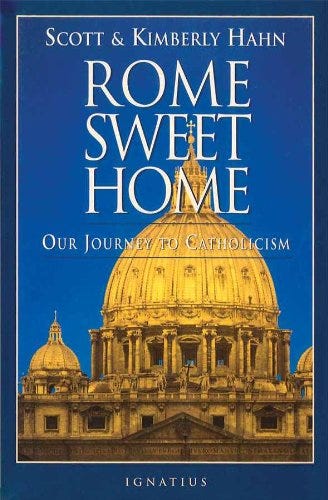
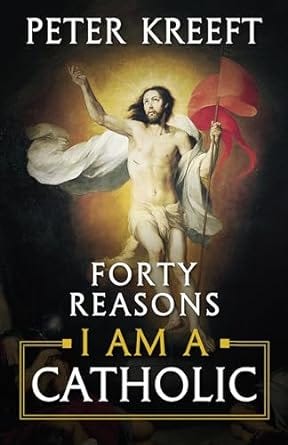
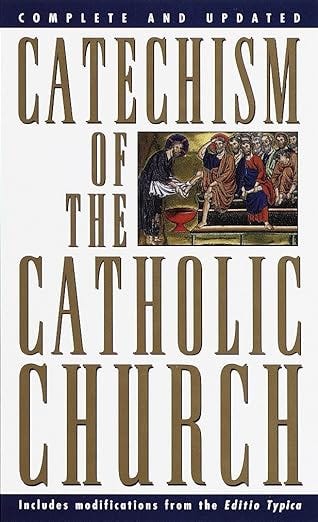
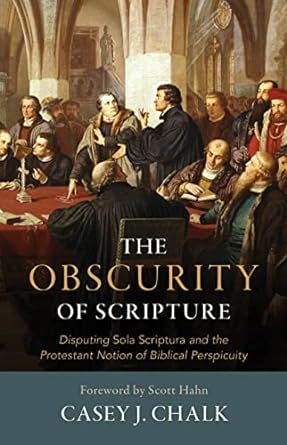
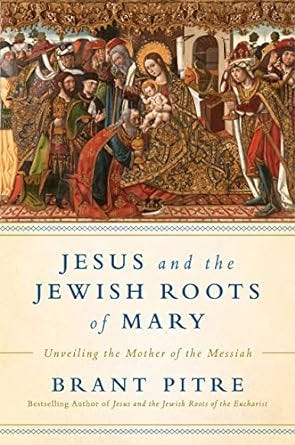
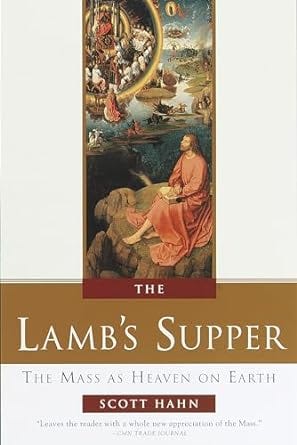
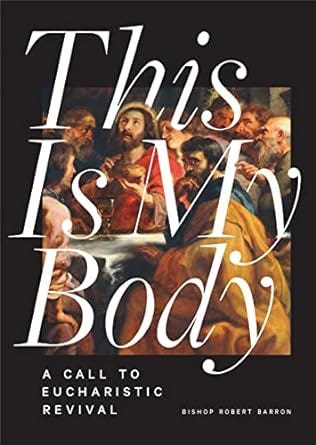
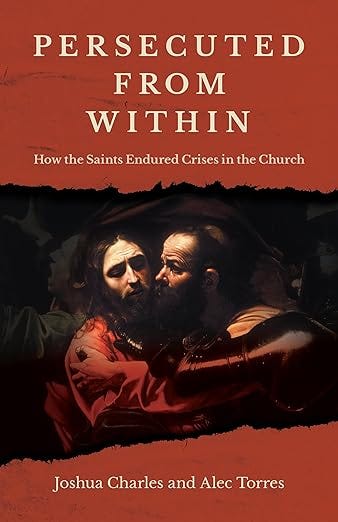
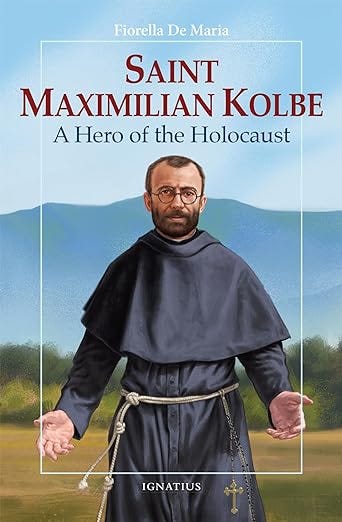
For those that just want the list, here it is. I attempted to put them in the order I purchased and read them, not necessarily by order of significance. If you decide to purchase them, please use my affiliate links here below 👇 . That way I get a kick back 😇.
Rome Sweet Home by Scott Hahn
40 Reasons Why I’m Catholic by Peter Kreeft
The Obscurity of Scripture: Disputing Sola Scriptura and the Protestant Notion of Biblical Perspicuity by Casey Chalk
Jesus and The Jewish Roots of Mary by Brant Pitre
The Lamb’s Supper by Scott Hahn
This is My Body by Bishop Barron
Persecuted from Within by Joshua Charles and Alec Torres
Saint Maximilian Kolbe: A Hero of The Holocaust by Fiorella De Maria
Honorable Mention:
The Case for Catholicism by Trent Horn
Faith and Reason: Philosophers Explain Their Turn to Catholicism by Brian Besong and Jonathan Fiqua


